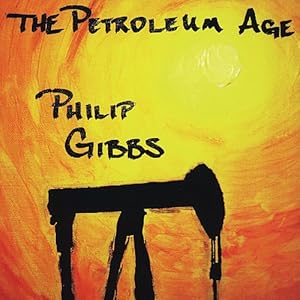|
Philip Gibbs, The Petroleum Age (independent, 2011)
Appealingly to me, Gibbs appears to know something of real -- that is, traditional -- folk music. He sounds a bit like Woody Guthrie filtered through the influence of Guy Clark, with the late Townes Van Zandt virtually the inventor of modern Texas folk. But the title tune, which opens the CD (it's co-written with Conor Hopkins), relies on the sort of threadbare default melody Tom T. Hall employed in many of his early songs, when his focus was on the telling of the story, not on the crafting of a hummable tune. The song, which I like well enough, represents an apparently emerging genre of topical protest (I've heard two others in the past month), a scathing critique of our insatiable dependence on fossil fuels -- a judgment many of Gibbs's fellow Texans do not want to hear; give the man credit for guts -- even as the earth's atmosphere spirals ever more alarmingly into higher temperatures and catastrophic instability. Two nicely crafted Texas-history ballads -- "Stephen F. Austin's Blues" and "Sam Houston's Blues" -- follow. "Gallows' Orphan," which briefly quotes the antique ballad "Gallows Pole" (usually associated with Lead Belly but predating him by centuries), tells the tale of a doomed murderer in first-person narrative. Once upon a time, when hangings were literally popular entertainment, these were given the grimly humorous appellation "good-night ballads." Other songs express more conventionally personal sentiments, usually of romantic anxiety, regret or disappointment. Gibbs has a firm command of lyric and melody, and so the songs feel true and grown-up. On the other hand, I still haven't figured out exactly what "Silver Dust," which gives the vague impression of being set in the Old West, is about. It sure is pretty, though. 
|
 Rambles.NET music review by Jerome Clark 23 July 2011 Agree? Disagree? Send us your opinions!  



 |

